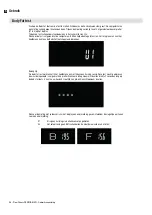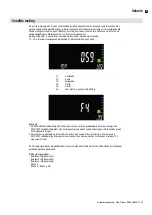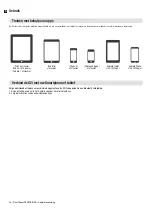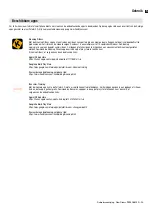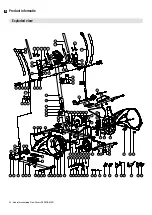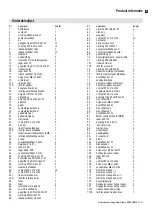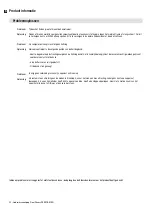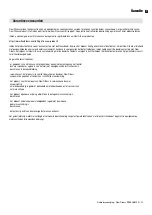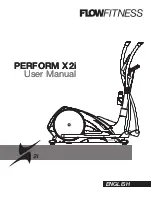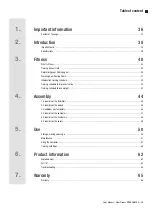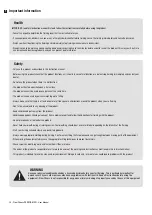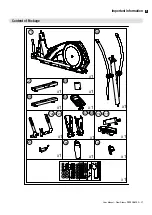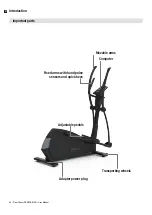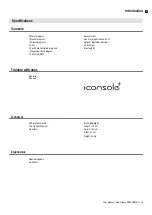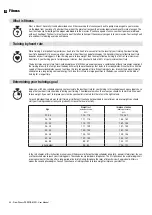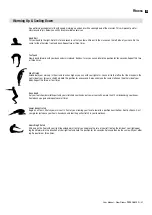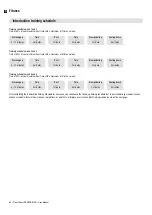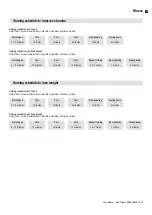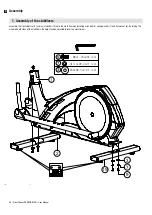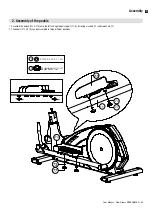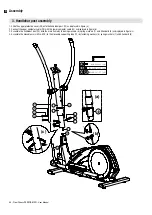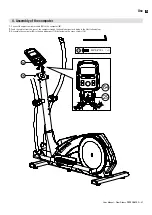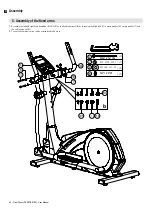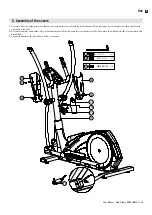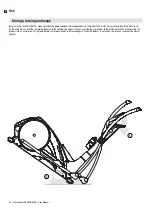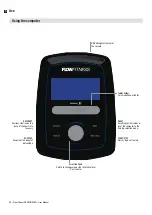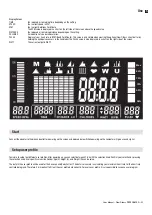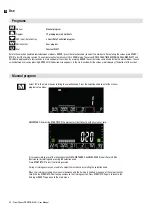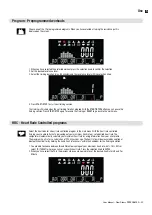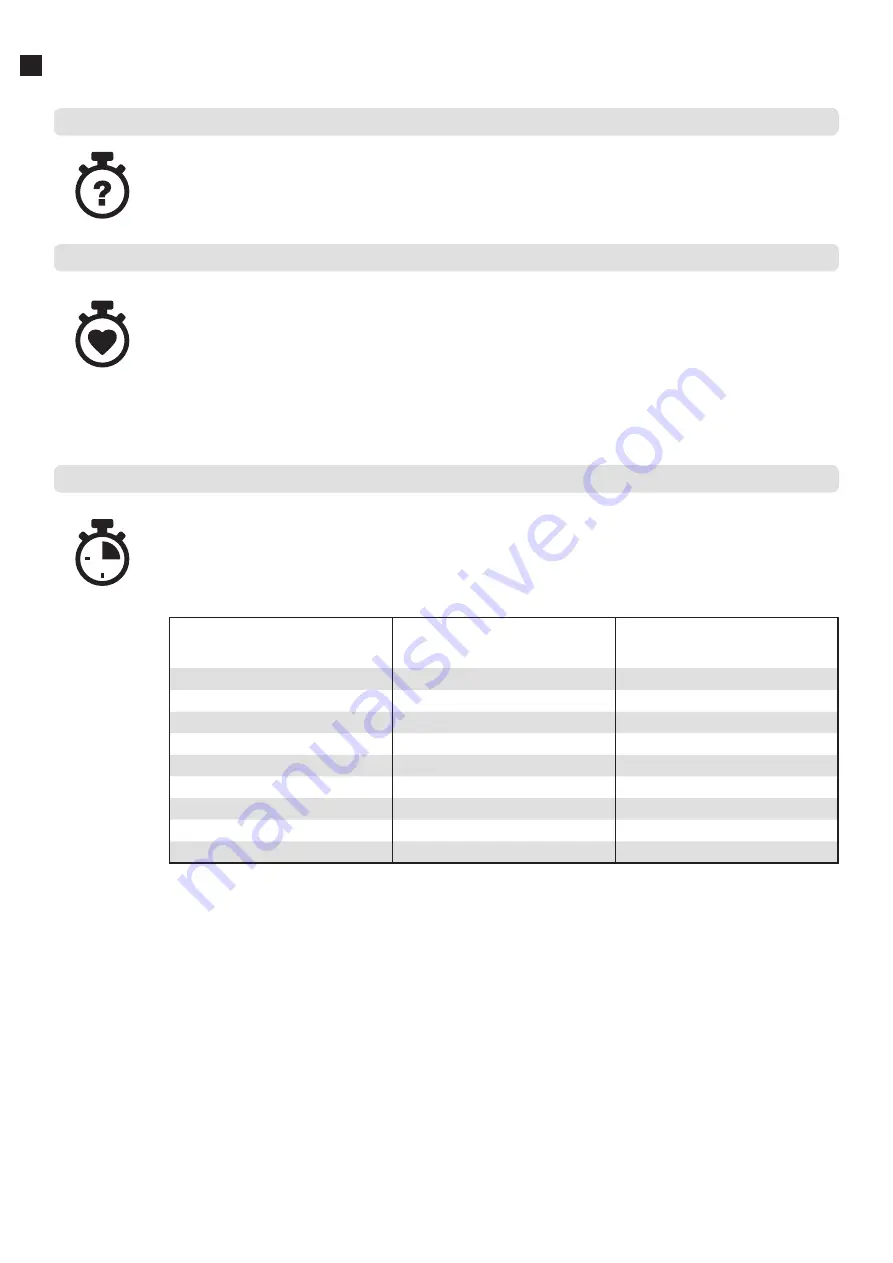
40 - Flow Fitness PERFORM X2i - User Manual
3
Fitness
Fitness
What is fitness? Generally it can be described as an fitness exercise that causes your heart to pump more oxygen to your muscles
via the blood from your lungs. The harder the workout, the more fuel (oxygen) the muscles require to achieve this rate of oxygen. The
heart has to pump harder to get the oxygenated blood into the muscles. If you have a good stamina, your heart pumps more blood
with each heartbeat. The heart will not have to beat that often to transport the necessary oxygen into your muscles. Your resting heart
rate and heart rate during exercise will reduce.
While training it is important to monitor your heart rate. The heart rate is essential for the result of your training. Your best training
heart rate depends firstly on your age. Your maximum heart beat can be determined by this. Secondly the most effective heart rate
depends on your training goals. If your training goal is to lose weight, then the most effective training is at 60% of your maximum
heart rate. If your training goal is to improve your stamina, then you should train at 85% of your maximum heart rate.
The body stores energy in two forms: carbohydrates and fat. When we exercise we use a combination of these two energy supplies. If
the training intensity is at a high level the body will mostly choose the energy that burns fast: carbohydrates. Since there is a limited
supply of these carbohydrates you can’t continue this for a long period of time. When training at a low intensity the body will mostly
choose to use a long lasting source of energy: fat. Since this is stored in large quantities in the body, you can continue this kind of
training for a longer time.
Below you will find a schedule allowing you to calculate the best heart rate for your training. In this schedule each age category has a
range that your heart rate should be in during your training. The middle column has the values you should try to maintain if you want
to lose weight. If you want to improve your stamina you should try to maintain the rates in the right column.
For each individual the best way to start training is different. If you have not exercised in some time or are overweight, you should
start your training schedule slowly and gradually increase the level of activity.
In the last chapter of this instruction manual you will find several different training schedules (chapter 5. general information). You can
use these schedules to reach your training goals. The schedules are divided in two phases. The first phase can be used for beginners
or persons who start training after a long period of inactivity. During this phase the level of intensity is built up gradually. After six
weeks the second phase begins. You can then choose a training schedule to lose weight or improve your stamina.
Age
Weight lost
(beats per minute)
60%
Improve stamina
(beats per minute)
85%
20 -24
120 - 118
170 -167
25 - 29
117 - 115
166 - 163
30 - 34
114 - 112
162 - 158
35 - 39
111 - 109
157 - 154
40 - 44
108 - 106
153 - 150
45 - 49
105 - 103
149 - 145
50 - 54
102 - 100
144 - 141
55 - 59
99 - 97
140 - 137
60 and older
96 - 94
136 - 133
What is fitness
Training by heart rate
Determining your trainings goal

